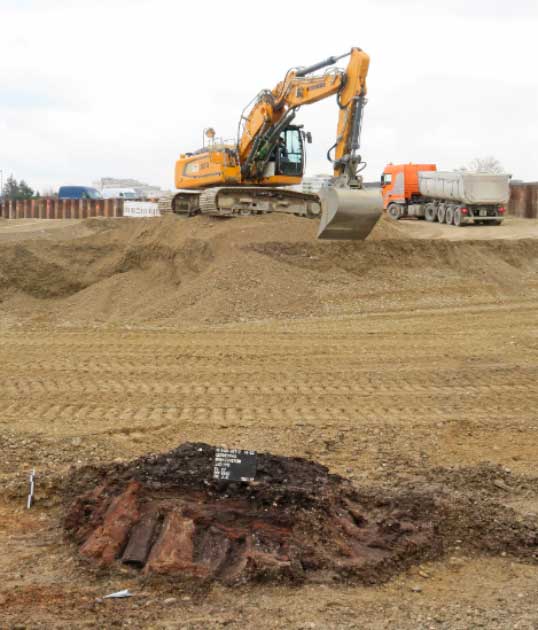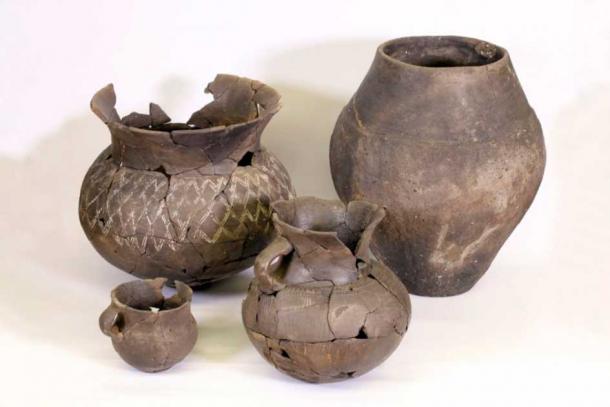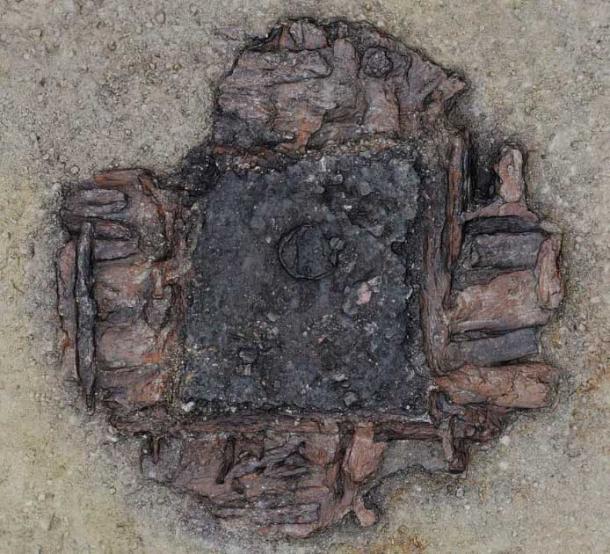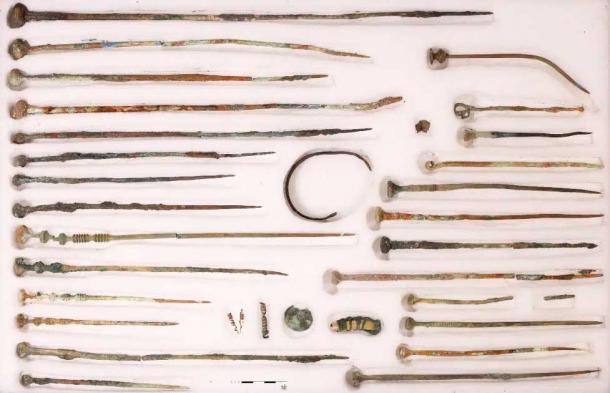Archaeologists digging in a Bavarian city have discovered around 70 ancient water wells. However, none of them was as laden with treasure as this latest well.
For all ancient civilizations, water was the primary source and sustenance of sustained agricultural success, and all life. This is why natural water sources became sanctified, or ritualized. Local springs were enhanced with stones to form ‘wells’ and because people so often visited wells they became community centers and meeting places.
Wishing wells , in which spoken wishes would be granted, have been a staple part of European folklore since prehistory. Most often, the magical mechanics of wishing wells were activated by people throwing in gold coins , a tradition which gives rise to Europe’s many town center fountains into which modern passers-by drop coins.

A Wishing Well Packed With Bronze Age Artifacts
Excavations have been undergoing at Germering, in the district of Fürstenfeldbruck, in Bavaria, Germany, since 2021. Archaeological finds show that Germering was first inhabited around 9,000 years ago and evidence demonstrated that people have been farming in the area for more than 4,000 years.
To date, approximately 13,500 archaeological finds and over 70 water wells, primarily from the Bronze Age and early Middle Ages, have been discovered at Germering. However, none of the previously excavated wells held such a hoard of valuable treasure as did this one.
During the construction of a new distribution center, a team of archeologists discovered and excavated a five meters (16.4 feet) deep “wood-lined” well. The team discovered that the base of the well was “completely preserved,” and held a collection of ritual deposits from around “3,000 years ago” during the Bronze Age .

Sacrifices For A Good Harvest
A report on Archaeonews explains that the Bavarian researchers examined sedimentary layers at the bottom of the well in which they uncovered “70 richly decorated bowls, cups and pots, the type normally found in Middle Bronze Age burials placed as grave goods”. Each of the vessels had been deposited in the well with great care and were found “completely intact.” Furthermore, “bronze garment pins, metal spirals, a pendant animal tooth wrapped in metal,” were also discovered in the well.

Mathias Pfeil, from the Bavarian State Office for the Preservation of Monuments , says that even today people drop coins into wells and fountains hoping that their wishes will be granted. While people’s motivations some 3000 years ago, for leaving valuable offerings in wells, cannot be determined with any sort of determination, it is assumed by archaeologists that they were “sacrifices for a good harvest,” explains Pfeil.
Magic Wishing Wells, Or Antibacterial Safe-Zones?
Analysis of the well’s sediments revealed that the groundwater had dropped considerably when the artifacts were deposited around 3,000-years-ago. It is speculated that a long drought and poor harvest had inspired people from the surrounding communities to ritually deposit so many “high-status artifacts and ceramics.”

Germanic and Celtic peoples considered springs and wells sacred places . As such, they often erected wooden statues depicting the god or goddess associated with the pools, as spiritual guards.
Germanic peoples often threw the armor and weapons of defeated enemies into bogs and water other sources as “sacrificial offerings,” and this is why most historians would agree that these traditions mark the root of magic wishing well rituals.
While superstition claims it is ‘potentially lucky’ to throw a coin in a well, the manifestation of one’s wish depends on how the coin lands. Generally, when a tossed coin lands heads up, the divine guardian of the well would grant the wish, while tails up coins are ignored. However, stripping back all of the magic discussed herein, many archaeologists believe that ancient people had unwittingly discovered the biocidal properties of both copper and silver . In sufficient quantities these two metals, that are traditionally used in coins, can make impure water safer to drink, thus, more “fortunate”.








